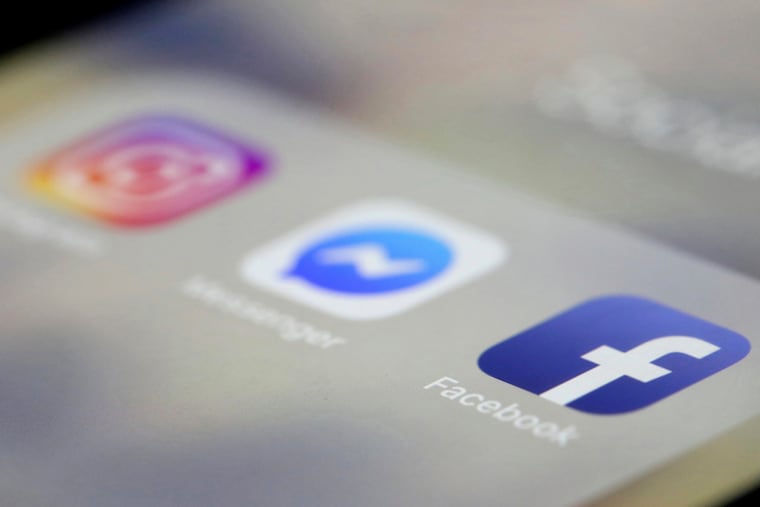For those of us wedded to our digital devices, how about we try a ‘Scroll-Free February’?
To build a deeper sense of personal connectedness, what if we all stopped visiting social media sites for a month?

I’m not sure about you, but Dry January is hard.
I started on Jan. 1, having set an intention not to have any alcohol. I did well — until Jan. 3. Then, the Chablis came calling. I’ve had off-and-on success, and the news that came out last week about alcohol being bad for you in almost any amount helped me to get back on track.
I haven’t been successful every day, but I am trying to think hard and make a conscious choice if I am going to have an evening glass of wine. And, when I fail, I try all over again the next evening. That’s the thing about intentions — we can keep coming back to them.
I try to apply this idea of conscious choice-making to other aspects of my life, too.
One way I am going to try to keep this going is by adopting a practice of “Scroll-Free February” — not visiting any social media apps on my digital devices for an entire month. I like this idea because I am a notorious scroller, and it is the shortest month, so I figure that I have a slightly better chance of being able to stick with it.
“Americans, on average, scroll 2 ½ hours per day.”
I have read that Americans, on average, scroll 2 ½ hours per day. When I heard that, I had a sick feeling in my stomach. All that lost time! In one month, I will have scrolled about 75 hours. In that time, I could have made real traction on improving my Italian, writing a book, or exercising. I feel that there are activities that I have not even considered because my brain is dulled by all the time I spend on social media.
Also difficult are the depressive feelings I get when I see all the “fun things” everyone else is doing, or the twinge of regret when I do finally get off and realize it’s dark and my dogs have been hungry for hours. Maybe by not scrolling for a big chunk of my day, my mind will be still and new ideas will come up. I will notice more, feel more, be a more connected part of my community, and better able to be in real relationships with those around me.
I’m not saying that it will be easy. My mind is already wired to want that “candy.” Maybe I will put my phone in a place that makes it difficult to get to, like a locked drawer with a key in another room. I also might want to plan things for those times of the day when I am most tempted to scroll — maybe a morning workout or a walk with a friend. I might even delete the apps altogether.
There are activities I keep saying I want to do but seemingly “don’t have time for.” Like taking a yoga class, or reading the book for my book club, which I often don’t do but go anyway because there’s wine.
Maybe I’ll go to a local business that I keep wanting to try, like the olive oil and vinegar shop, which will also encourage me to make something interesting for dinner instead of the same old thing, or the new coffee shop that sells homemade cupcakes.
I’m considering volunteering, maybe the noblest of activities I could undertake. I’m eager to open my mind to others’ beliefs, cultures, and lives. Just writing this makes me feel the possibilities are starting to add up.
You may be wondering, “OK, so go do that. Why do you need to make me feel guilty for scrolling?” Well, I’m sorry about that, and maybe you can ask yourself what it is that is making you feel guilty. Is it possible that there’s some twinge of regret for you, too?
I love the idea of being consciously in control of what I bring my attention to. As my yoga teacher says, “Where your attention goes, your energy flows.” I want to stop allowing — yes, allowing — tech companies to think they can control how I spend my day.
Are you with me? Let’s create a hashtag: #ScrollFreeFebruary. (That’s a thing, right?) See you on the ‘Gram in March.
Heather Riley is a cofounder of Hive & Thrive, a Philadelphia-based consulting firm that works to teach organizations to incorporate the tools of positive psychology into the workplace. www.hive-thrive.com